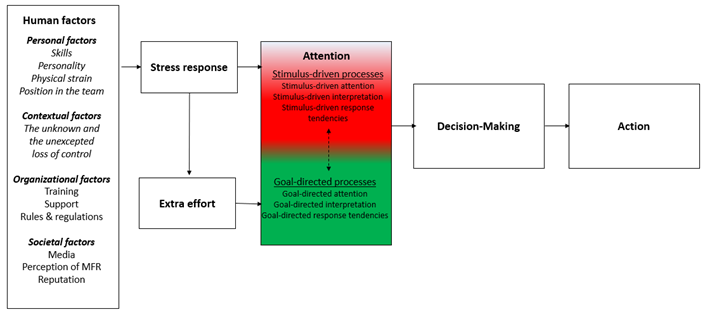Every research project needs a scientific backbone - Learn more about the scientific model of MED1stMR:
According to the EPME model, stress plays a central role for the performance of medical first responders (MFRs) during demanding events, such as a mass casualty incident. High levels of stress can then drive attentional processes away from pre-planned executions to become distracted by (irrelevant) stimuli within the immediate environment. This process may be buffered against by increasing mental effort to focus on the task-relevant information. Once a MFR becomes increasingly distracted, their pool of options for decision shifts is decreased overall. This, in turn, leads to less effective actions, which are also executed less optimally.
Therefore, to combat the potential negative effects of stress, interventions can be placed at several steps of the process. For example, the perceived coping resources may be increased (e.g., more or more effective training time) or the effective implementation of extra effort may be enhanced. Additionally, psychological skills, such as mindfulness may also help a MFR to redirect their attention, while breathing exercises can help to buffer the immediate physiological responses.
Learn more about the scientific model of MED1stMR in this 2-page factsheet:

